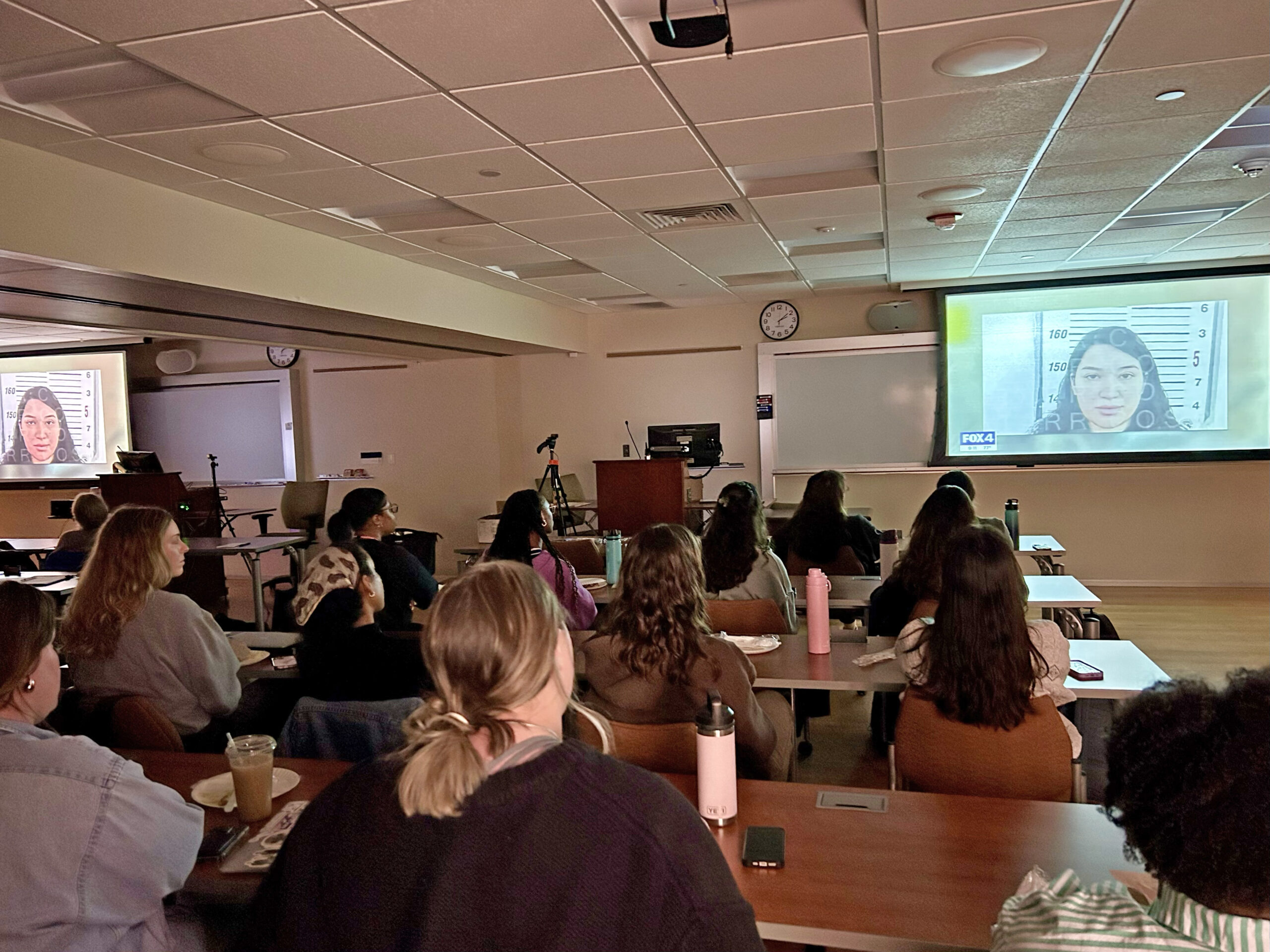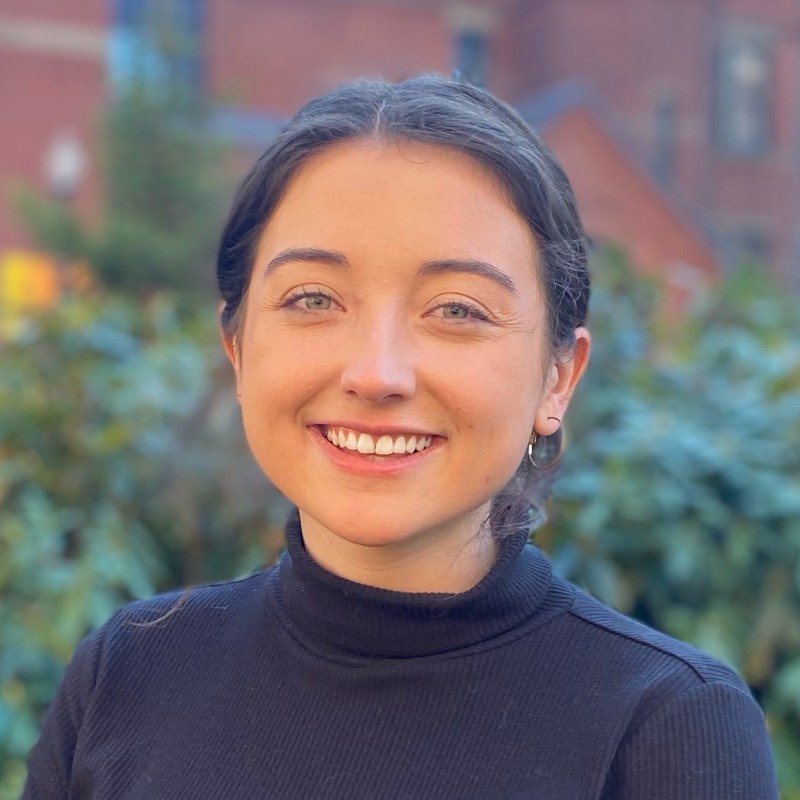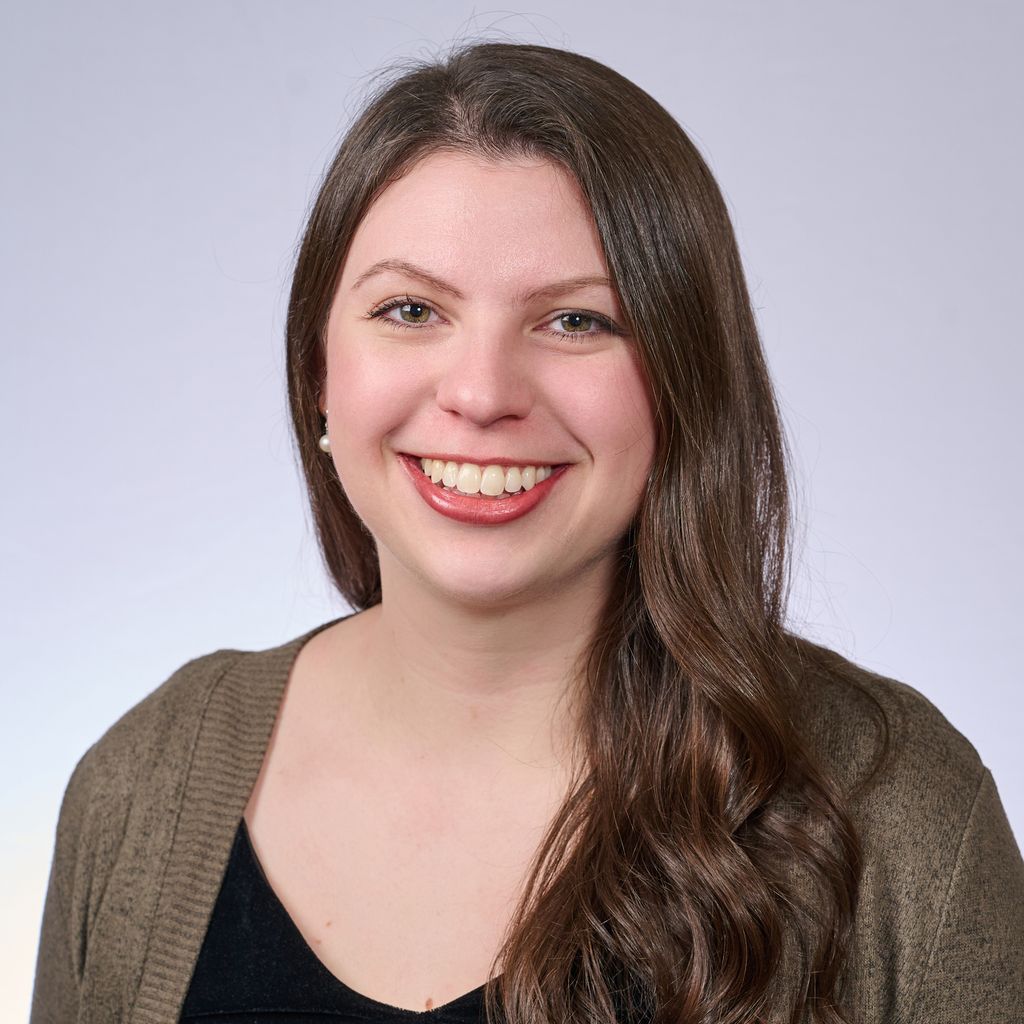Reproductive Justice Student Alliance Gains Momentum.

Reproductive Justice Student Alliance Gains Momentum
The new student group organized a campus-wide screening of Plan C, a documentary first premiered at the Sundance Film Festival that follows public health activists and healthcare providers as they come together to expand access to medication abortion.
Photo: Megan Jones/SPH
Just a few weeks after its founding, a new student organization at the School of Public Health, the Reproductive Justice Student Alliance (RJSA), has begun a slate of activities dedicated to advancing reproductive justice at BU and beyond.

“[RJSA] aims to bring together students and professionals from a variety of disciplines who all share a passion for reproductive justice,” says group co-founder Sarah Rowan, who studies community assessment, program design, implementation and evaluation (CAPDIE) in the Master of Public Health program at SPH. “There are certificates intersecting reproductive justice, such as maternal and child health or sexuality and gender, and other student organizations do exist at SPH with overlapping missions, but none are specifically devoted to reproductive justice.”
Reproductive justice (RJ) is a framework at the intersection of reproduction rights and social justice. The term was first coined in 1994 by a group of Black women who envisioned a movement centering the reproductive health concerns of minority, low-income, and other marginalized women, families, and communities. Their seminal work has since grown into a national movement due to the ongoing efforts of the multicultural RJ organization SisterSong. The RJ framework includes, among other tenets, the rights to have children or to not have children, and to parent children in healthy environments free from violence.
The new SPH organization plans to tackle today’s challenges to RJ by joining forces with their counterparts at organizations and student groups across the University who share their values and passion, Rowan says. “In the professional world, people with different skills and expertise frequently collaborate. We want to start making those connections now.”

Co-founder Julia McCrone (SPH’24), who studies health communication and promotion in the MPH program, agrees. “We needed a way to find each other, so we can work together and learn from each other—that is our goal,” she says.
The pair founded RJSA in March 2024 with the support of Nicole Huberfeld, Edward R. Utley Professor of Health Law at SPH, professor of law at BU Law, and co-director of the BU Program for Reproductive Justice (BUPRJ); and of Lois McCloskey, director of SPH’s Center of Excellence in Maternal and Child Health (MCH CoE) and clinical professor of community health sciences.
McCrone was student in McCloskey’s course Reproductive Health Advocacy: From Rights to Justice (MC785) in spring 2023 and Rowan took a course with Huberfeld in fall 2023 after attending BUPRJ’s January 2023 symposium “After Roe And Dobbs: Seeking Reproductive Justice In The Next Fifty Years.” When Rowan and McCrone each expressed interest in becoming more involved in the cause, Huberfeld and McCloskey encouraged them to establish a network of like-minded students to center attention on RJ issues and support the development of careers in the field.
As it turns out, there are many like-minded students at SPH. McCrone reports that attendance at RJSA’s inaugural event on March 27, a “lunch and learn” focused on a recent U.S. Supreme Court case concerning medication abortion access, more than exceeded their expectations. People filled the room for the conversation, she says, which was co-hosted by SPH’s Center for Health Law, Ethics & Human Rights and Health Policy and Law Student Organization. “There were even people sitting on the floor.” McCrone estimates 35 students in attendance specifically expressed interest in joining RJSA.
On April 17, RJSA collaborated with MCH CoE and BUPRJ to host a second event at BU, a screening of Plan C, a documentary that premiered at the Sundance Film Festival in January 2023. The critically-acclaimed film follows public health activists and healthcare providers as they come together to expand access to medication abortion. The BU screening was followed by a Q&A with Francine Coeytaux, who founded the grassroots organization Plan C depicted in the film.
Nearly half of all U.S. states have imposed abortion bans or restrictions since the Supreme Court eliminated the constitutional right to abortion in 2022; however, abortion pills remain accessible by mail nationwide, due to the efforts of a handful of activists and healthcare providers.
According to Coeytaux, upwards of 12,000 medication abortions per month are prescribed via telehealth to patients residing in states where the abortion care is criminalized, and all by just 15 providers living in six states where shield laws protect them from possible prosecution.
Coeytaux has made it her mission, and the mission of Plan C, to spread the word about the safety and efficacy of abortion pills, so that anyone seeking to end an early pregnancy has the autonomy and ability to do so, regardless of barriers created by their local lawmakers and courts.
“The empowerment is in the information, and that is what we need from all of you. We have done all the work to make [medication abortion] a reality, but if people don’t know about it, we can’t help them,” said Coeytaux, addressing the audience following the film screening.
McCrone and Rowan heard Coeytaux’s call to action and say they look forward to spearheading alliances between public health and healthcare similar to those depicted in the documentary. They have already reached out to BU School of Law’s chapter of the national nonprofit If/When/How and the BU Chobanian & Avedisian School of Medicine’s Medical Students for Choice to partner with RJSA on future activities and events. They also intend to invite BU’s Planned Parenthood-associated organizing group Students for Reproductive Freedom to join their budding network.
McCrone will graduate and leave the young organization come May, but with elections for RJSA’s executive board on the horizon, she says she looks forward to passing on the baton to a diverse team and feels optimistic about the future of RJ leadership at the School.
